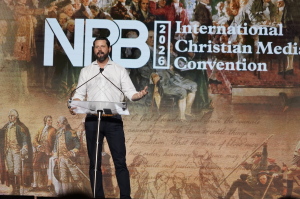Common objections to Christianity (part 1)
The Bible, particularly the Old Testament, tells of morally repulsive and cruel practices. How can God command such acts as the killing of people groups, including women and children and other forms of violence?
Craig Keener: Sometimes when I have read through the Book of Joshua, I have had to put it down because of such killings. It is natural, and even Christian, to react to these accounts in such a way. Jesus, after all, does teach the way of peace. So from a Christian perspective, such warfare was never God’s ideal.
But in a real-world of suffering and injustice, sometimes the best available option falls short of the ideal. Nevertheless, we should look at limiting factors in the description.
First, such “holy war” was limited exclusively to ancient Israel’s conquest of Canaan.
Second, devoting something to a deity for destruction was a culturally understood practice in that period.
Third, it was not permitted until Canaan reached a particular depth of depravity (Gen. 15:16). Archaeological remains from settlements of Canaanites displaced by Israel suggest that this included sacrificing many of their own children. It was in effect a sort of corporate capital punishment against such societies, but it was not practiced against Philistines or other settlers in the land at a later time.
Fourth, most summaries in Joshua reflect a literary genre found in other conquest lists from surrounding cultures (e.g., Egypt) that speak of decimating a place when in fact these included skirmishes of small armies followed by people fleeing a location. In this period, civilians typically fled conflicts. Depending on when we date the conquest, Jericho may have been a fort with few actual women and children, Rahab and her family being an exception because she is said to have been a prostitute. Judges and other passages in Joshua confirm that the conquest was in fact not anywhere close to total.
Fifth, the issue was the culture’s moral state, not ethnic. Canaanites who sided with Israel (such as Rahab) were welcomed, and those who entered into nonaggression with them (such as Gibeonites, deceptively) were protected. Canaanites recognized that Israel’s God was powerful; individual Canaanites and towns had the option to switch sides.
Sixth, the Israelites were not (during the conquest) powerful oppressors against the vulnerable; they were freed slaves who would not be permitted to settle in a new land without a fight.
Finally, the danger of the corrupt Canaanite culture remaining is illustrated by what in fact happened: it remained and heavily influenced subsequent generations of Israelites, who defied the true God by pursuing false ones and sometimes sacrificed their own babies to these gods.
Despite all this, from a Christian perspective, this was never God’s ideal. No culture was yet ready to follow a divine ideal of nonviolence, which would result in decimation. But Jesus both taught and, on the cross, demonstrated the divine ideal: to love one’s enemies.
Craig Keener is the F. M. and Ada Thompson Professor of Biblical Studies at Asbury Theological Seminary in Kentucky. Keener has authored 24 books.
J. Harvey Walton: The obstacle that the conquest of Canaan poses to faith derives primarily from certain assumptions about what the written account of the conquest is supposed to convey.
In one conception, the commands to Israel represent a manifestation of God’s action in history that observers are expected to analyze and thereby derive knowledge about the nature of the God who produced the phenomenon, comparable to such sign-acts as the parting of the Red Sea or the Resurrection. According to this reading, Yahweh demonstrates himself to be a God who delivers his people from slavery, but also as a God who butchers women and children.
In a second conception, the commands represent God’s attempts to reform Israelite society to better conform to a divine moral ideal, comparable to [what is commonly thought of] the Torah or the prophetic declarations. According to this second reading, Yahweh’s ideal society includes things like honoring parents and caring for the poor, but it also includes genocide.
The obstacle commonly manifests itself when people do not wish to worship a God who would [supposedly] kill women and children, or do not wish to subscribe to a religion whose socio-moral ideals [supposedly] include genocide. The means to overcome this obstacle is to realize that both of these approaches are misguided.
The conquest of Canaan does not represent God acting in the world as a demonstration for people to see and understand what God is like. Neither does it represent God instructing Israel how God expects his ideal people to behave.
The conquest of Canaan is the origin story of the nation-state of Israel and as such, the details it provides are intended to help the reader understand what the nation of Israel is and by extension what role it was intended to play in God’s plans and purposes.
Israel was being established by God as the center of the world order, similarly to the way pagan gods were understood to have established cities.
Mesopotamian cities were the center point of the cosmos where the gods resided and where order and stability radiated out to the rest of the world. In order to build them, the elements of chaos first had to be subdued and driven away so that the city could be raised in the space they had left behind. Sometimes the chaotic elements included people, what we would today call “barbarians.”
This is how the Canaanites are being depicted in Israel’s literature. They are uncouth, chaotic beings who need to be driven away — this is the emphasis of the term ḥerem, which means "remove" — so that the place through which God will bring order and stability to the world can be established.
It is important to remember that God’s plans and purposes do not involve driving away the barbarians — whomever they represent, Canaanites or otherwise — as an end itself. The image of the gods and/or their human agents driving away chaos and establishing divinely-facilitated order in its place was chosen because it was meaningful to the culture in which the Bible was written and represented the means by which the ideal state of being was supposed to be brought about.
If the story of the founding of Israel had been written to our culture, instead of to the culture of the iron age Levant, it would not have been presented in this way.
In our culture, the ideal state of being is brought about by humanistic enlightenment followed by democratic revolution. This is how we construe the origin stories of our own societies, even at the expense of historical accuracy. We also find it disturbing that Israel’s origin story — which we misread as God’s universal formula for establishing an ideal society — does not follow that pattern. But the conquest does not represent God’s universal formula for establishing an ideal society; it instead presents Israel as the center of the world order through which deity operates on the basis of the ideas inherent in the culture to whom the documents were written.
The conquest is not a genocide story; it is a creation story. Further, God was not telling Israel — or us, for that matter — what creation ought to look like. Rather, he was telling them what Israel was created to be — the center of the world order where the deity will reside and bring about his plans and purposes — and was doing so using imagery of creation that would carry this meaning for them.
The Canaanites are depicted as the uncouth elements of chaos in order to situate them within this narrative. They are vilified and dehumanized in the same manner and for the same reasons that the aristocratic oppressors are vilified and dehumanized in our modern stories of revolution.
But putting women and children to the sword — and justifying doing so by one’s own internal logic — does not represent the essence of God’s purpose and ideal for Israel, any more than dragging women and children to the guillotine represents the essence and ideal of democracy.
We can understand and appreciate what the libertines were trying to bring about in France, even if we do not approve of the means by which they did so. In the same way, the proper interpretation for the biblical reader is to understand and appreciate what God was trying to bring about in Israel and we can likewise do that without approving of the means.
We might ask why God did not educate the Israelites to act in a manner of which we would approve. That question misses the point. It was a different time and a different culture. God’s objective was not to reform that culture but to communicate meaningfully within it.
As interpreters, our task is not to pass judgment on the actions of God or the actions of Israel but to understand instead what those actions were intended to accomplish: not killing sinners or outsiders and not crafting an ideal society, but establishing Israel conceptually as the place where the work of the deity will be carried out and spread over the entire world.
Hopefully, this sort of nuanced adjustment to interpretation will help anxious Christians embrace a healthier understanding of the biblical God without feeling morally compromised.
J. Harvey Walton is working on his Ph.D. in analytical theology at the Logos Institute of St. Andrews University in North Carolina. He has co-authored three books: The Lost World of the Conquest, The Lost World of the Torah, and Demons and Spirits in Biblical Theology.



























